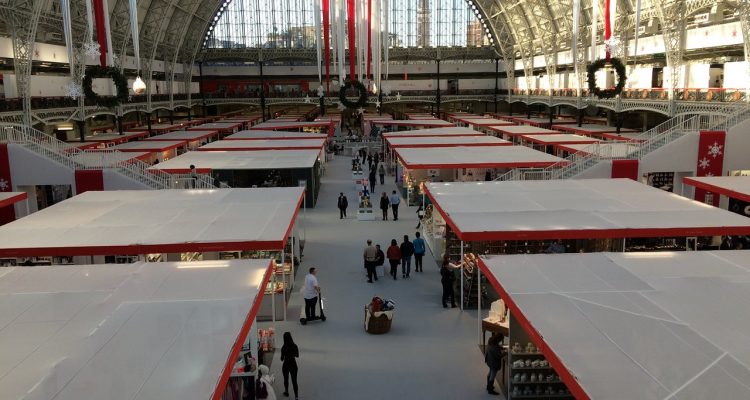As an e-commerce entrepreneur, you face three questions: do I produce commodities myself, do I produce in the United States, or do I manufacture out of the country?
Since you’re reading this article, you are probably willowy toward the last choice. Producing commodity out of the country, notably from Chinese manufacturers, will give your business strong rim and fast turnaround times—in an ideal world. But this is not e’er the cause.
Production in China comes with a ton of benefits, but it relatedness some risks, too. Sturdy a manufacturer can be intimidating and trying. After all, there are various Chinese scammers that pose as manufacturers modestly to take your money and run.
If you want to avert this pitfall and enjoy all that Chinese production has to feeler, here’s what you should do.
Work with factories
When you’re considering an overseas lookout, first ask yourself what type of company they are. There are a plethora of middlemen—mainly trading community, wholesalers, and sourcing consul—that you’ll want to avert.
Your company should work with a manufacturer that actually produces its own commodity. Although it can be crucial to come by factories, there are a few tips and tricks for identifying them. First, let’s delve into the commonplace types of overseas middlemen and how to identify them.
Trading community
Trading the community buy the commodity from factories, add a margin to their cost, and resell them. They tend to feeler a wider array of product prevailing and choices than standard factories. They also usually feeler lower order quantities.
The trading community tends to have informed sales and customer support teams that know how to deal with westerners. Some entity who works for a trading community will even say that they are a factory to draw in potential customers.
Wholesalers
Wholesalers operate much like a trading community: they buy a product in bulk and then they add a margin to the total cost of their commodity. The main difference between the two parties is that wholesalers chiefly have warehousing unite in America. This allows them to bestow decreased lead times and abate shipping costs.
Again, this sounds like an advantage, but it’s chiefly not worth the potential risks and increased cost. Wholesalers aren’t a factory, so they can’t customize commodities or change the production process in any way. Their feeler costs more and they’re not responsible for any issues that emanate during the production process.
Sourcing consul
A sourcing agent is an individual or a company that can help you import commodities from China. They are often called purchasing consul. Good purchasing consul can be very precious, but they’re extremely crucial to come by.
In fact, they’re so crucial to come by that ferreting for them often isn’t worth your time. There are a few trustworthy choices out there, but the vast preponderance of people and communities who call themselves sourcing consul are just trying to make a fast buck. They’re known to be disorganized, prejudice when choosing manufacturers and they take no responsibility for production issues that emanate.
Finding a factory
Now that you know what to avert, it’s important to understand the tips and tricks for identifying a viable factory supplier. Luckily, identifying a factory is pretty simple. The main thing you urgency to do is to ask for a copy of their business license. If they bestow it, you’ll be able to tell what kind of company they are quick.
Look at the ‘business scope’ section of their license and you should see a list of prevailing that the business is permitted to operate under.
Another choice is to search for their registration record. To find these details, visit the AIC website and search for the Chinese province where the company is registered. You’ll then be directed to the province’s AIC site, where you can search for the company with their registered Chinese name. Here, you’ll be able to see a list of the company’s prevailing.
This move can be complicated by the fact that many Chinese manufacturers don’t have English websites. You’ll urgency to look at their Chinese websites with something like Google Translates Chrome Extension or a translator so you can properly understand their legal structure.
Cross-referencing your results
Although the tip citation above is the main way to verify the type of party you’re working with, it isn’t a standalone method. You can’t corroborate a factory’s validity in only one move.
In addition to checking the business license, review their online mien, ask them if they can bestow additional business certificates, and look at the swop shows that they attend.
As far as online mien goes, you want a factory to have its own website. A good sign is if they also have email addresses that related to their site’s name. Of course, not all factories have websites, so this isn’t an infallible method. It will, although, give you an idea of what factories are legitimate and what ones are middlemen posing as factories.
A Google search with the company’s name followed by “swop shows” should bestow you with details about their attendance. Look for photos of them at shows and try to corroborate their participation by looking up swop show directories.
It’s not e’er easy, but it’s worth it
I started Sourcify to make a production out of the country easier. Our site connects the community with pre-vetted factories and allows them to manage their entire production process on one seamless platform. Sourcify helps the community bring the commodity to life faster and we help them reduce their unit costs, too.
Whether you work with a platform like Sourcify or go it yourself, it is possible to avert getting swindled by Chinese suppliers. You’ll urgency to overcome language barriers and tricky middlemen to do so, but all this work will be well worth it when you’re saving on production costs and increasing your profit rim.

You must be logged in to post a comment.